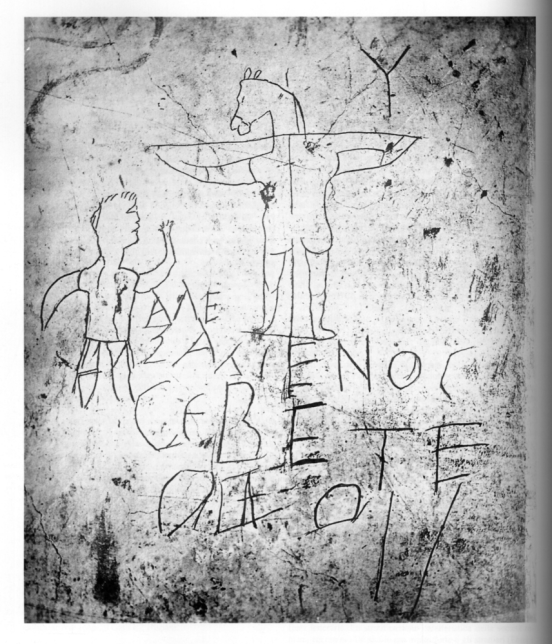Laughing at Bullies in the Third Reich
High on my list of heroes is a name that may be unfamiliar to you, as it was to me a year ago.
Wilhelm Busch was a youth pastor, a war veteran, and student of theology. He spent three decades serving teenagers and young adults and he was, for a critical moment in time (ie 1930s and 40s), a member of the Confessing Church in Germany.

1897-1966
While the Reich was busy pulling young people into Hitler Youth activities, Wilhelm Busch was faithfully teaching the sort of Christianity that proves the vile falsehoods that give rise to hatred, exclusion, prejudice and extremism. When the Nazis sought to pull his students away from their Christian commitments, Busch held on and pulled back–a dangerous and consequential tug-of war for the souls of German youth.
I first read about Busch in Dean Stroud’s compelling text, Preaching in Hitler’s Shadow: Sermons of Resistance in the Third Reich. What put Busch on my hero list and captured my imagination is this short vignette from the book:
The youth pastor had so many interrogations with the Gestapo that for his twenty-fifth interview he wore a black suit with a flower boutonniere. When one of the Gestapo asked in amazement what he thought he was doing, he said he was celebrating their twenty-fifth anniversary.
It’s Not a Large Leap from “Gallows Humor” to “Crucifix Humor”
In their 2012 book, Preaching Fools: The Gospel as a Rhetoric of Folly, Charles L. Campbell and Johan H. Cilliers give theological justification for the kind of protest that laughs at bullies and mocks the Empire’s pretensions of power. They root their theology in the Cross itself and set out the premise of their book this way:
Gospel foolishness so disrupts our systems and securities that it calls both preacher and church to in-between, liminal places where fools make their home and where theology is unsettled and identity is in flux. This foolishness cannot be captured or controlled, either in sermon or book or life, for it challenges our rigid ‘iron theologies’ and our desire for clear, stable identities. This foolishness challenges us especially at times when societies are unsettled, and we are tempted to guard ourselves against the flux of developing just such iron theologies and stable identities.

Cilliers and Campbell go on to demonstrate their point by discussing the Graffito Blasfemo, a second-century carving of an earnest teen worshipping before a cross where Christ–depicted with a donkey’s head–is being crucified.

After it was used as an insult against them and their Lord, early Christians turned the donkey into an emblem of the Christus Paradox. The beast is a stable, steady and hard-working creature *and* it is humble, even silly or stupid. Thus it is that Jesus mocks the Roman Empire by a “Triumphal Entry” riding the back of … an ass? They write, “In Christianity the donkey was, and still is, appreciated and applauded as being part of the foolish history that God makes with humanity.
From second century carvings to early 20th century Russian literary criticism, Cilliers and Campbell move on to Mikhail Bakhtin’s interest in trading the epic genre, with its unassailable heroes, for novels featuring quirky characters and odd circumstances that map more realistically into our lives. The novel, like a carnival or a parody, give us the opportunity to tell the truth and to laugh at bullies, which may be a way of saying the same thing twice.
In the court of a mad king, in the presence of a tyrant, we turn to the jester to tell the truth. Even if it is apparent to many, the jester is uniquely positioned to speak truth to power. You can be fairly confident that authoritarian leadership has reached its ascendancy when the most popular late night comic loses his head … or his job. Let’s pour one out for Stephen Colbert, patron saint of jesters.
Laughing at Bullies in the Present Moment
A couple weeks ago I wrote that my favorite protest sign is actually the American flag. I stand by that AND the next best protest signs are the ones that make me chuckle. Its not uproarious laughter, mind you, but the kind of chuckle that accompanies a nod of recognition, a settled sense of what is true and the relief of knowing you aren’t the only one who can see that the Emperor is nekkid.
- “Ikea has better cabinets”
- “Trump calls hoagies subs” (you have to be from Philly to appreciate this diss)
- “It’s almost like the economy is being run by someone who bankrupted 4 casinos.”
In the comments section in an earlier post, someone drew my attention back to the way that Filipino nuns placed flowers in the barrels of guns during the People Power Revolution in that country.
As an elementary schooler living in the Philippines at the time, I was just grateful for a few days off from school! I also remember that my dad had just bought one of those shoulder-mounted video cameras that were the cutting edge of technology in the mid-80s. Decked out in a CNN polo shirt that he’d been gifted as the press officer at the US Embassy, he went out in the streets that day. (I have weird home videos.)

Four decades ago, I was too young to appreciate the way that gesture by the women religious on the streets of Manila participated in the disruption that Cilliers, Campbell, Bakhtin, the anonymous carver of second-century graffiti, and Wilhelm Busch all recommend. But the greatest recommendation for calling absurdity by its name and laughing at bullies is that it is a participation of Jesus Christ’s own work, a unique twist on carrying the Cross.
Jews demand signs and Greeks look for wisdom, but we preach Christ crucified: a stumbling block to Jews and foolishness to Gentiles, but to those whom God has called, both Jews and Greeks, Christ the power of God and the wisdom of God. For the foolishness of God is wiser than human wisdom, and the weakness of God is stronger than human strength…God chose the foolish things of the world to shame the wise; God chose the weak things of the world to shame the strong. God chose the lowly things of this world and the despised things…
For the message of the cross is foolishness to those who are perishing, but to us who are being saved it is the power of God.


12 Responses
Thank you.
I will share this widely. Thank you.
Excellent piece! It’s encouraging to read posts and watch reels from pastors who speak out against what is happening now. I pray your words and theirs will open the hearts of Christians and others who seem to have chosen self-righteousness over love.
Great essay.
Wonderful! Thank you!
What a wise read on our present moment. We know this latest came from the very top of the Ikea cabinet who can’t stand to be mocked because it falls too close to the truth. Disheartening when parts of our lives that we valued and trusted bend the knee instead of standing strong. Thank you; I’m praying that the jesters in our midst find ways to continue to point out that the Emporer is ‘nekked’.
Tiananmen Square hero. Danish royalty wearing yellow stars. Delegates abandoning synod tyranny. We need more… Thank you.
Thank you, Meg! I like the creative resistance examples from history. They remind me of examples given in the book Blueprint for Revolution. It’s a classic. Lots of good lessons for our time in the U.S. https://en.wikipedia.org/wiki/Blueprint_for_Revolution
just to be clear, Stephen Colbert’s show is cancelled because it’s losing $20 million a year. And it’s losing $20 million year because he’s not funny.
Tom,
None of what you wrote is true (mostly not true). The show is more than likely losing about $40 million a year (insider reports), which might be part of why it was cancelled. Of course, it’s been losing money for quite some time, as all of these kinds of shows have. Linear TV is going the way of the DoDo bird. It is odd that his show was cancelled with no known re-negotiations to shrink the budget and then actually make money. And the timing is peculiar. I suppose it’s all coincidence. Also, all humor is subjective. You don’t find him funny, and that’s fair (hence the “mostly not true”), but as he and his show is the highest rated late night show on broadcast TV, someone must.
Well, I guess I had the number wrong (trying to be generous I guess). In my view, the fact they were actually losing $40m/year rather than only $20mil sort of makes my statement more true, even if factually off by 200%.
re: being funny – the handful of times i’ve watched his monologue (not many, I must confess) it seemed he got more applause than laughter. The greatest part of humor is taking the unexpected turn, and you can see most of his punch lines coming a mile away – he feeds his crowd ‘applause lines’ that bash Trump, knowing everyone in his audience already agrees with him and will applaud loudly. That’s not exactly speaking truth to power – or funny; the sign examples she provides are funny, whether you agree with them or not. It seems to me a bit of an insult to a Wilhelm Busch, willing to put his life on the line to say his piece to the SS, to put him in the same class as a guy getting paid $20 mil a year to spout his opinions to an audience that he knows completely agrees with him.
I actually agree with this essay, just thought the Colbert reference a bit puzzling and out of place.
“Let’s pour one out for Stephen Colbert, patron saint of jesters.”
Yes, who will think of the poor Hollywood celebrity? If we can’t feel bad for the $75 million dollar net worth foul-mouthed pundit masquerading as a comedian, we really need to check our empathy meter.
Colbert’s dignified response to needling: “Go fuck yourself.”
Of course, his mentor Jon Stewart, who initiated the turning of late-night comedy into a boring partisan laugh track, taught him well and demonstrated that in his cringy ditty aimed at CBS: “Go fuck yourself.” So original. So brave. So cutting edge. So compelling. Who wouldn’t want to watch that? This little ‘skit” was complete with a crew of black minstrels, just to class it up a bit. The humor is too much to handle!